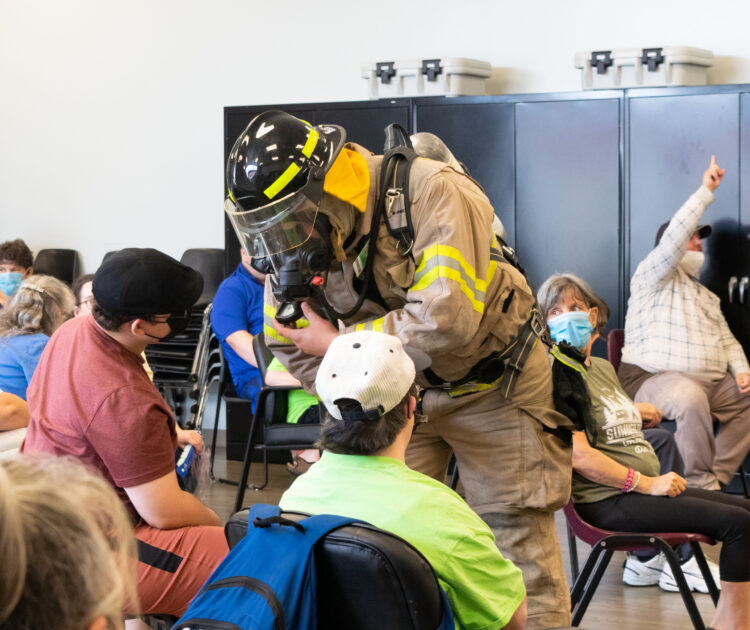Holidays are typically associated with days spent with loved ones, gift-giving, ample food and loads of fun. Still, for countless people, the holidays are a challenging time. While Holiday Blues are usually temporary over the holiday season, they can lead to clinical anxiety or depression.
There are several common reasons for the Holiday Blues, including stress, loneliness and high expectations. When you understand where the triggers for holiday apprehension come from, you can take the proper steps to reduce stress and navigate the holiday season.
Triggers For Holiday Stress
You’re Not Feeling The Holiday Spirit
There is a lot of social pressure to be merry and bright at this time of year, so if you are not joyful, it can be unnerving to speak up.
You don’t have to force yourself to be happy. Acknowledge your emotions and remember that you are not alone. If possible, surround yourself with like-minded individuals. Don’t numb or avoid feelings by using alcohol or other substances; doing so will worsen depression and anxiety.
Family Commitments And Social Pressures.
A packed social calendar can quickly seem overwhelming. Family visits and party overload are common triggers for seasonal anxiety.
Planning ahead for family get-togethers and celebrations can help you prepare in advance and eliminate some of the stress. But don’t be afraid to say no. During the holidays, feeling pressured into joining every social event and overfilling your schedule is common.
Family dynamics can be complex, and setting boundaries can be tricky. But you must limit your exposure if your mental health is at risk.
Taking time out to recover after an event is vital. Take time to relax at home with a good book or spend some time in nature to replenish your energy.
You’re Stressed About Giving Gifts
Holiday gifting is a financial burden for many people, while others are stressed about choosing the perfect gift.
Create a budget and stick to it. Be transparent about what you can afford and set realistic expectations for friends and family. Purchasing a gift for a large number of people can be costly. In this case, suggest having a Secret Santa exchange to reduce the number of gifts each person needs to buy.
Gifting to others is not about how much money you spend but about the sentiment behind the gift. Gifts do not have to be material items; we can give of ourselves. Offer your services or talents to a family member, friend or neighbor. The act of giving is more meaningful than how large or expensive the gift is.
Feelings of Sadness, Loneliness or Loss
The Holidays can be a sad and lonely time for people who recently lost a loved one or experienced a traumatic event. Past traumas can also raise emotions that make you feel sad and isolated.
Just because it’s the holidays doesn’t mean you must always feel happy. Acknowledge your feelings. They are normal, and the more you try to suppress them, the worse they will be.
When you have lost someone dear, it’s difficult to celebrate, and when people all around you are joyous, it makes your loss feel more profound. Consider doing something in your loved one’s honor and take time to reflect on special memories of them.
If you are sad and lonely or far from loved ones over the holidays, volunteering at a local organization may provide a way to socialize and experience holiday cheer.
Limited Sunlight And Dull Winter Days Get You Down
Winter blues are common when sunlight is limited, and holidays coincide with dull winter light in the northern hemisphere.
Insufficient natural light can lead to depression or increase symptoms of depression. But even in midwinter, there are ways to boost your mood.
Try to get as much sunlight as possible. Schedule outdoor activities for midday when the sun is brightest. If there is not enough natural light in your home, consider adding bright, warm lighting. The holiday season is the perfect time to incorporate mellow candles and sparkling lights that may lift your mood.
Final Word
Accept your moods, embrace your needs and put yourself first. Identify your triggers. Once you know what they are, you can avoid triggers or plan ahead to help you cope with stress.
Set aside time to get fresh air, do physical activity, and participate in things you enjoy.
Keep in mind that you are not alone.
If you feel hopeless or have suicidal thoughts, reach out to a 24-hour crisis service.


 Previous Post
Previous Post

